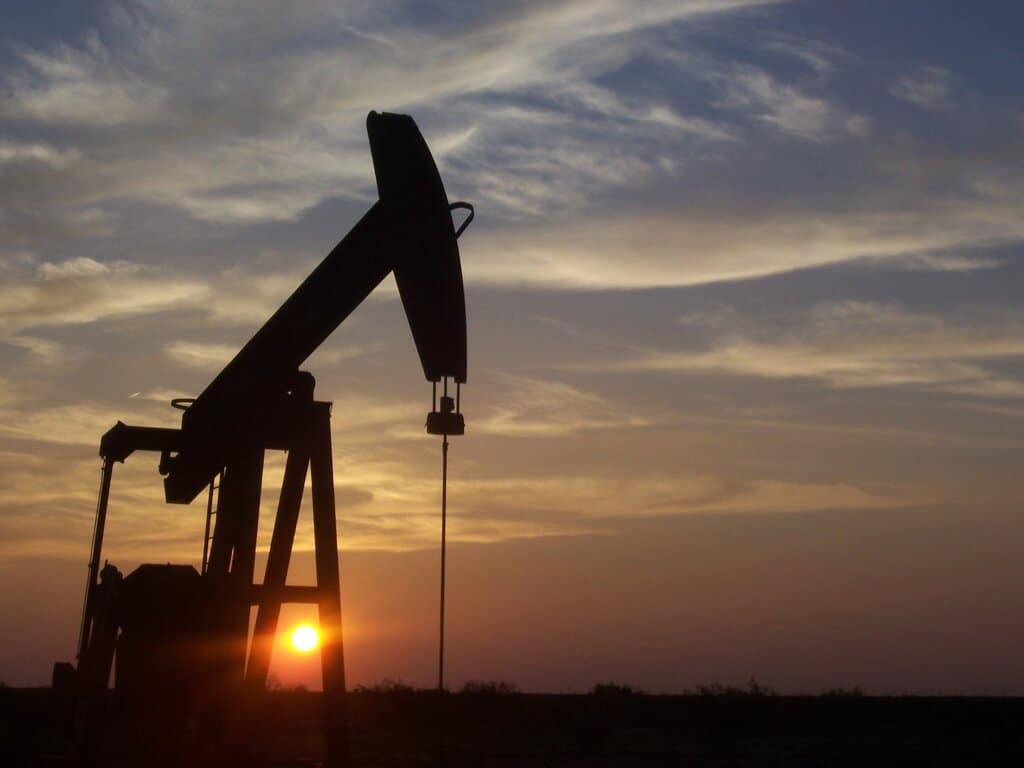Despite recurring instances of ecological degradation linked to the oil industry, whether it is from oil pollution or general practices, major corporations seem to evade liability with excessive ease. A harsher spotlight is needed on the fossil fuel sector to ensure a higher standard of environmental protection and ethical practices.
—
Despite the relatively recent decline of the oil industry, effects of its ecologically dismissive practices and subsequent oil pollution continue to be felt without sufficient consequences. A push towards environmental responsibility and liability for ecological damage has only just begun, but it is certainly a step in the right direction.
Over the last few centuries, the global population has become increasingly dependent upon one of Earth’s most finite resources without sufficient regard for the consequences of this growing reliance. It powers the cars we drive, the planes we ride, the buses we chase after, and junk boats we hire out on those hot summer weekends. National economies hinge on its availability, and the production of plastic, clothes, and technology would cease without it. It has fuelled political conflicts, wars, mass casualties, and severe environmental degradation. Yet, the average Joe filling up his tank with fuel never stops to consider what was sacrificed for the comfort of driving his private, two-seater Porsche. It seems as though our vulnerability to a life without crude oil has provided major oil companies with the perfect excuse to extract this “liquid gold” by any means necessary. This includes immense, irreparable damage to ecosystems and habitats, with drilling sites leaving grave ecological disasters in their wake. All the while an unjustifiable cloak of indemnity drapes over shareholders and CEOs, facilitating their continued evasion of fines, penalties, and imprisonment.
You may be asking, but isn’t the situation improving? The oil industry is on a steady decline, with stock values of the four biggest oil and gas companies dropping to less than half of their original values since 2010. Seven countries around the world are running almost exclusively on renewable energy, with many more following suit. There are currently over five million electric vehicles on the road, and it is estimated that 58% of global vehicle sales will come from electric models by 2040.
Whilst these feats of environmental protection are surely reasons to rejoice, we must not turn our attention away from the fossil fuel industry just yet. Despite usage of crude oil dropping drastically in the past few years, the US continues to consume around 18.9 million barrels of petroleum per day. Saudi Aramco, one of the largest oil companies in the world, is responsible for emitting 59,262 million tonnes of carbon dioxide annually, constituting 4.38% of total global emissions for 2019. Despite previously enacting a referendum to limit oil drilling to an area of 300 hectares, the Yasuni National Park in Ecuador, a UNESCO biosphere, suffered 413 hectares of deforestation in 2018. Even if oil extraction or oil pollltuion were to cease in such an area, extensive soil erosion would prevent the ecosystem from ever fully recovering.
Widespread greenwashing campaigns produced by oil giants attempt to bury evidence of environmental malpractice with sizeable donations into green charities and exaggerated claims of eco-friendliness. This effectively deceives those with little understanding of their past and current offences. A prime example is the lack of awareness surrounding the thousands of oceanic oil pollution and spills that occur in the US each year. Although most are small in scale, such as when petroleum spills during the refuelling of shipping vessels, they still cause damage to wildlife and ecosystems in the surrounding environment.
You might also like: Mapping the Mauritius Oil Spill
This rampant ecological destruction and oil pollution followed by a lack of accountability and legal ramifications has been ongoing since the beginning of oil excavation. Two infamous examples illustrate this tragic commonplace of ocean environments and developing countries.
The first involves Texaco, which was bought out by Chevron in 2001. Upon merging, Chevron admitted to Texaco dumping approximately 18.5 billion gallons of toxic water into the Ecuadorian Amazon rainforest between 1964 and 1990. This affected over 800,000 hectares of rainforest. Drilling sites left behind toxic ponds of thick, oily sediment which continue to run into sources of freshwater used by Amazonian populations today. Consequently, cancer and disease have become far more widespread among these indigenous communities as a result of the oil pollution. A mere USD$40 million was spent on clean-up and restoration, which is dwarfed by the USD$400 million Chevron spends annually on legal fees in an attempt to evade liability for the events. 
The second surrounds the catastrophic Deepwater Horizon oil spill in 2010, which is one of the most controversial environmental disasters in history. An explosion at the BP-owned oil rig in the Gulf of Mexico caused over 500 million litres of crude oil to spill into the surrounding ocean. Despite a settlement of USD$20.8 billion between BP and the US government in 2016, clean-up efforts appeared more concerned with hiding the spill than effectively extracting it from the water. Dispersants were utilised in unprecedented quantities in an attempt to dilute the oil and prevent it from reaching shorelines. The resulting diluted oil was shown to be extremely toxic to fish, turtles, birds, and corals, sinking to the bottom of the ocean in large plumes. Furthermore, the dispersants used, Corexit 9500A and Corexit 9527A, were found to be the most toxic and least effective of their kind. With board members previously employed by BP and Exxon, it’s no wonder that Nalco, the dispersant producer, was able to sell millions of dollars of dispersants to BP.
Nevertheless, the million dollar question remains: How do they evade liability?
There are several factors at play in the lack of accountability within the oil industry, differing depending on the circumstances. Acts of environmental degradation in developing countries are most commonly committed not by the parent company itself, but by a subsidiary or shell company under its control. The parent company is given permission to establish drill sites by providing unfounded promises of financial compensation, or by simply bribing government officials. Once sufficient oil has been extracted (in other words, once the land has been stripped of all its intrinsic value), the subsidiary is simply dissolved. This essentially leaves no trace of either the subsidiary or the parent company, and thus no one to foot the bill for the damage left behind. Thereinafter, issues of jurisdiction step in, preventing the legislature of the developing country from filing a lawsuit against the parent company. Even if the lawsuit were to go to court, the corporation could avoid paying either by continuously filing appeals against the decision, or by simply not paying.
Chevron-Texaco employed this tactic in 2011, where an Ecuadorian court fined the company USD$18 billion for the aforementioned damages to the Amazon. Chevon refused to pay and withdrew all of their assets from Ecuador. The damages remain unpaid to this day. As former general counsel of Chevron, Charles James, stated, “We’re going to fight this until hell freezes over, and then we’ll fight it on the ice”.
However, we must not despair. Environmental protection efforts have received a great gust of strength in recent years. Groups of conservationists have seen past the greenwashing, beyond the shield of indemnity, and have decided to challenge both oil giants and the societal norms that purportedly protect them. In the United Kingdom, the Supreme Court made a landmark ruling in February 2021, stating that Shell could be sued in an English court for the crimes committed by its Nigerian subsidiary. Shell was subsequently fined USD$111 million for the ecological mess it left in Nigeria in 1991, with crude oil pollution causing extensive contamination of soil and freshwater. In May 2021, the Hague further ordered Shell to reduce its carbon emissions by 45% by 2030.
Meanwhile, in the United States, nearly two dozen lawsuits have recently been filed against the biggest players in the oil industry. Several cities and states are accusing these companies of contributing greatly to the environmental crisis, whilst covering up evidence of their malpractice and suppressing warnings from scientists as to the effects of their activities. A similar story transpired in France in 2020, with five NGOs and fourteen local authorities accusing Total of defaulting on their claims of improving their environmental protection efforts. Underpinning the case was the French Duty of Vigilance law of 2017, which states that French multinational corporations are responsible for the actions undertaken by their subsidiaries.
By sustaining this societal scrutiny of the oil industry, corporations can be held to a higher standard of responsibility for their actions. With recent landmark rulings and laws regarding the liability of parent companies for the crimes of their foreign subsidiaries, developing countries may finally achieve justice for the ecological disasters inflicted upon their land. We must continue to press for reduced carbon emissions and enforce penalties when targets are not reached. We must regulate oil drilling in developing countries to prevent forced labour, environmental damage, and financial duress from occurring. Most importantly, we must begin to take a look at our own carbon footprint and determine how we can help by making a difference locally.
Featured image by: Eric Kounce/Wikipedia


















